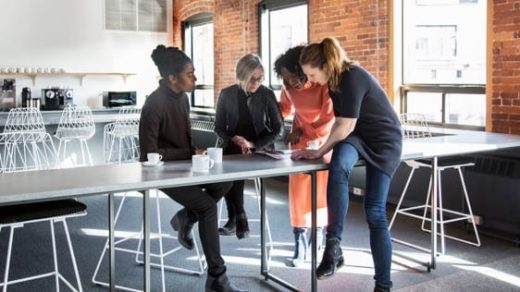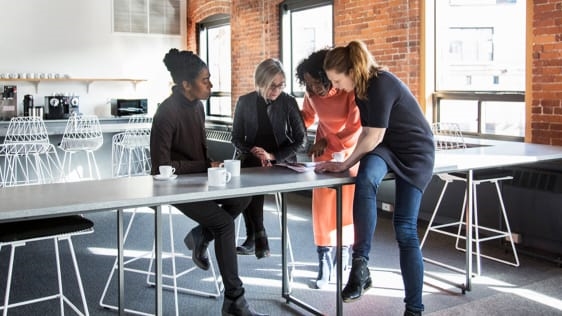This Old House Is Being Remade Into A Springboard For Minority Women In Tech
Last summer, Carolle Nau, a designer and creative director at the tech and business incubator SkyLab Boston, spent some time volunteering at a homeless shelter in Roxbury, a historically black neighborhood in Boston. Specifically, she was there to help out with a program that taught young women staying at the shelter how to code. “I was blown away by how thirsty and bright these young women were,” Nau tells Fast Company. But many of them were in their late teens or early twenties–right at the point at which they were beginning to age out of the shelter system.
Nau discussed the issue with her friend and SkyLab Boston cofounder Brigitte Wallace, and the two of them began to ponder how they could continue to foster these young women’s interest in coding, while providing them a secure, stable place to live and from which they could build out a career and resources. At the same time that they first started talking about this idea, an old Victorian house on Nau’s street in Roxbury went on the market. They decided to buy, and begin to realize their vision.
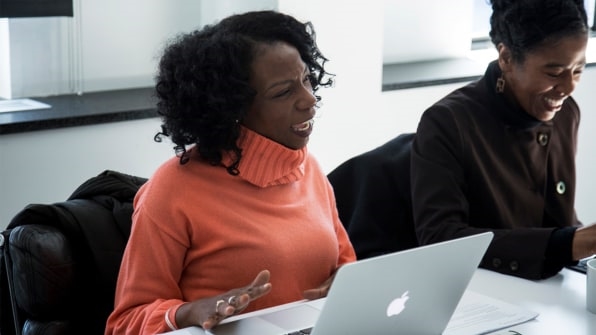
Purchasing the house served a dual purpose. It will, as early as next year, transform into what Nau and Wallace are calling [G]Code House: A 14-person residence that will house and support young women of color as they learn coding skills and take on internships and eventually, jobs, in tech–an especially vital goal as the share of black women professionals in tech has declined 13% over the past decade. And in buying the house to transform it into a community asset, Nau and Wallace are hoping to stem the tide of gentrification in the area. Wallace is a long-time Boston resident, and Nau grew up in Roxbury, in a stable home that her parents owned. But as developers have begun eyeing the neighborhood, rents have risen, and “there’s a sense of instability and uncertainty,” Wallace says.
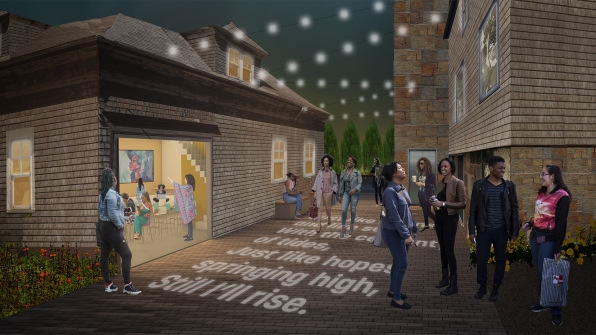
From the [G]Code House founders’ perspective, the most effective bulwark against gentrification is local residents with the skills and tools to remain in place and support their community–which is ultimately what they hope [G]Code House accomplishes.
While still in the early stages of planning and concepting, [G]Code House has already attracted local support, most notably from the Boston-area-based design firm Sasaki, which will be modernizing the interior of the old Victorian to make way for the startup. In January, Sasaki hosted a pro-bono design charrette in Roxbury, during which they sourced community input on the concept for the home’s interior. Much of the redesign, says Sasaki principal Christine Dunn, who is spearheading the project along with principal Katia Lucic, involves opening up the bottom floor to create a sense of community, and to support the programming that Wallace and Nau are conceiving for the startup.
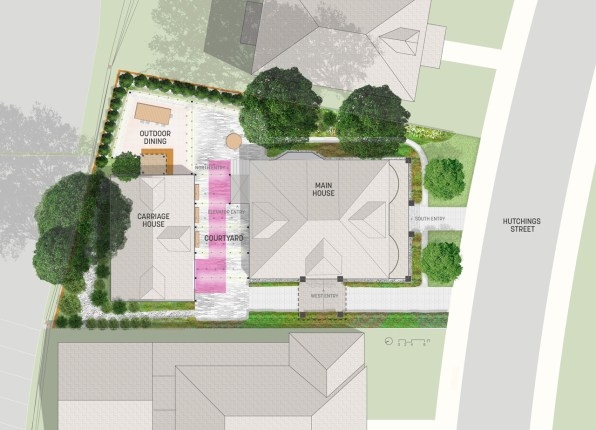
The [G]Code House founders imagine that the first class of 14 women, whom they will accept from local homeless shelters and disadvantaged schools, will live at the house for approximately two years, during which they’ll spend the first nine months taking classes both at the house and with local partner schools like Northeastern University; during that time, their rent at the house will be waived. The following six months, Nau and Wallace imagine, they’ll take an internship at a tech company in Boston, and the subsequent nine months, they’ll be working full-time. Beginning with the internship phase, the women will pay a small housing fee to educate them on paying rent, but a portion of that fee, Wallace says, will be put into an account that they will be able to access upon leaving the house, that will set them up with some saving for when they strike out on their own. “We want to remove some of the burdens and excuses that people have for not exploring careers,” Wallace says.
As Sasaki begins the rebuild process, Nau and Wallace are focused on fundraising and securing relationships with tech companies like Rapid7 and Google that have offices in the Boston area, and could offer internship and jobs to the women once they complete the educational component of their time at [G]Code House. “What we’re really trying to get at is: How do we as a community retain young people and create opportunities for them?” Wallace says. “You focus on energizing the community through new housing models, and investing in people like these young women, who will begin to create a pipeline to jobs in tech.”
Fast Company , Read Full Story
(36)

